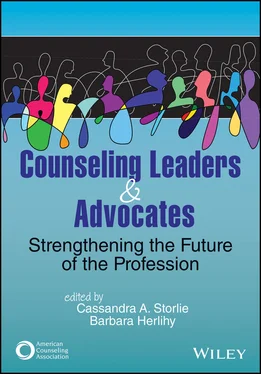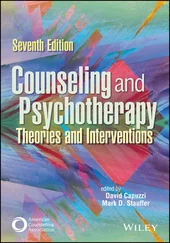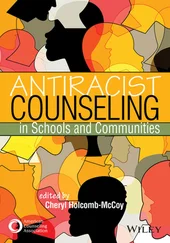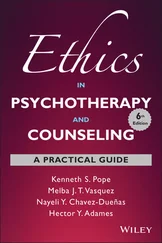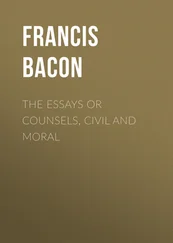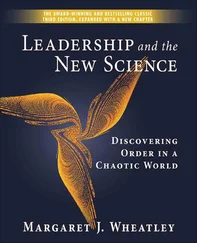Counseling Leaders and Advocates
Здесь есть возможность читать онлайн «Counseling Leaders and Advocates» — ознакомительный отрывок электронной книги совершенно бесплатно, а после прочтения отрывка купить полную версию. В некоторых случаях можно слушать аудио, скачать через торрент в формате fb2 и присутствует краткое содержание. Жанр: unrecognised, на английском языке. Описание произведения, (предисловие) а так же отзывы посетителей доступны на портале библиотеки ЛибКат.
- Название:Counseling Leaders and Advocates
- Автор:
- Жанр:
- Год:неизвестен
- ISBN:нет данных
- Рейтинг книги:5 / 5. Голосов: 1
-
Избранное:Добавить в избранное
- Отзывы:
-
Ваша оценка:
- 100
- 1
- 2
- 3
- 4
- 5
Counseling Leaders and Advocates: краткое содержание, описание и аннотация
Предлагаем к чтению аннотацию, описание, краткое содержание или предисловие (зависит от того, что написал сам автор книги «Counseling Leaders and Advocates»). Если вы не нашли необходимую информацию о книге — напишите в комментариях, мы постараемся отыскать её.
Counseling Leaders and Advocates — читать онлайн ознакомительный отрывок
Ниже представлен текст книги, разбитый по страницам. Система сохранения места последней прочитанной страницы, позволяет с удобством читать онлайн бесплатно книгу «Counseling Leaders and Advocates», без необходимости каждый раз заново искать на чём Вы остановились. Поставьте закладку, и сможете в любой момент перейти на страницу, на которой закончили чтение.
Интервал:
Закладка:
Counselors do not condone or engage in discrimination against prospective or current clients, students, employees, supervisees, or research participants based on age, culture, disability, ethnicity, race, religion/spirituality, gender, gender identity, sexual orientation, marital status/partnership, language preference, socioeconomic status, immigration status or any basis proscribed by law. (Standard C.5.)
We call upon professional counselors to move beyond simply understanding the current needs of diverse individuals and to engage in action-oriented interventions that address systemic injustices. Culturally responsive counseling leadership extends this approach across several counselor roles and functions, including professional counselor, advocate, supervisor, and leader (Peters et al., 2020; Ratts & Greenleaf, 2018).
We have much work to do in combating systemic racism (Lenes et al., 2020) and biased-based bullying (Toomey & Storlie, 2016) in our schools, in our agencies, within society, and in our own profession. We begin our exploration by providing some historical context for the inception of multiculturalism in counseling. We follow that with an overview of the development and endorsement of advocacy and social justice movements within our profession. We then present an ecological systems framework and discuss how counselors can become culturally responsive counseling leaders. As you read, we encourage you to reflect on the following questions:
What does it mean to you to be a culturally responsive leader in counseling? What does a culturally responsive leader do that is different from other leaders?
How can counseling leaders leverage their power and privilege to dismantle overlapping forces of oppression and extend opportunities for advocacy across contexts (e.g., professional associations, legislative bodies, universities, communities)?
How can counseling leaders identify their proximity to Whiteness and actions that reinforce White supremacy? How do they work with colleagues, teach, and mentor students and supervisees about these mechanisms?
How do we, as professional counselors, denounce the “deafening silence of dehumanizing and complicit inaction to address these systemic ills within our society?” (ACA, 2020b)
And last, but perhaps most important, how do we evaluate whether our culturally responsive actions have been effective? What do we need to do to ensure their sustainability?
History of Multiculturalism in the Counseling Profession
The very roots of our counseling profession are multicultural in nature, beginning with Frank Parsons and his advocacy work in vocational guidance with the immigrant population (Zytowski, 2001). Culturally responsive practice has been woven into the fabric of the counseling profession throughout its development (Chung et al., 2011; Peters & Luke, 2021). However, active and intentional discrimination was also present during the inception of counseling as a profession.
In the civil rights era of the 1950s, systemic inequality and racism were common in the United States, and those prejudices permeated institutions and organizations (Morning & Sabbagh, 2005). People of color, particularly Black individuals, were twice blocked from developing a unique and separate division in the American Personnel and Guidance Association (APGA; AMCD, n.d.), which later became the American Association of Counseling and Development (AACD) and changed once again to become the American Counseling Association (ACA, n.d.). Discrimination was evident in counseling research as well, and BIPOC researchers had difficulty getting multicultural research published (Ratts & Pedersen, 2014). This prejudice in the counseling profession limited access to evidence-based, culturally sensitive, responsive counseling interventions for non-white populations. Instead, “clinical practices focused on assimilating culturally diverse clients into White culture” (p. 8).
As the 1960s began to unfold, societal turbulence in the United States led to changes in discriminatory policies such as those reflected in discrimination against BIPOC in counseling. It was during this time that counseling professionals began to push back against the monolithic approach to counseling and to recognize the various cultures that make up our society (Neukrug, 2016). Notably, a number of leaders and groups called attention to the problematic lack of representation of BIPOC among the ranks of leaders and the overall membership of the APGA (now ACA). Before 1972, the Association for Non-White Concerns in Personnel and Guidance, which would eventually become the Association for Multicultural Counseling and Development (AMCD), had limited representation in the APGA and had no voting rights on its board of directors or senate (AMCD, n.d.). This important group, in effect, demanded representation of BIPOC in the overall membership of APGA and throughout the counseling profession. As this multicultural paradigm shift gained traction and support in counseling, it was evident that culturally responsive and socially just values were cornerstones for the evolution and continued development of the profession (Ratts, 2009, 2011; Ratts & Pedersen, 2014). This multiculturalism movement set a precedent for attending to the needs of a variety of culturally and linguistically diverse clients, students, and communities. Simultaneously, this movement embedded humanistic thought, strengths-based practices, developmental approaches, and wellness models into counseling practice, education, and supervision (Vereen et al., 2014). Stemming from the growth and visibility of the AMCD in the counseling profession, the need for guiding documents to supplement codes of ethics included a drive to develop the first iteration of the Multicultural Counseling Competencies (MCC; Sue et al., 1992).
Multicultural Counseling Competencies
AMCD commissioned the first edition of the MCC (Sue et al., 1992) to illustrate the tasks, responsibilities, and functions of professional counselors to uphold the values and standards of multicultural practices. The integration of inclusive values helped meet the needs of diverse communities, and professional counselors took more active steps to help eradicate social conditions that persistently impeded client and student trajectories toward optimal wellness across the life span. Implementing the MCC (aspects developed from the tripartite model consisting of Knowledge, Attitudes and Beliefs, and Skills) fostered a sense of attending to client, student, community, and public welfare while supporting professional counselors in successfully bridging the gaps in their own multicultural practice. The MCC gave professional counselors a launching point to address issues related to race and culture in their work settings, to further examine their individual roles in cross-cultural counseling, and to consider strategies for advocating for clients from various marginalized groups (Sue et al., 1992).
The early stages of the MCC marked an innovative and courageous step in both counseling practice and counselor education (Sue et al., 1992). Numerous counseling researchers began to establish measurements to assess effective multicultural counseling practice. The MCC highlighted the importance and responsibility of counseling leaders to serve as multiculturally sensitive practitioners and to ethically integrate multiculturalism into their leadership and advocacy efforts. Counseling leadership began to magnify multiculturalism, which established a pathway to a professional counseling identity that was distinct from that of other helping professions (Lee, 2012). Thus, it is imperative for counseling leaders to recognize and integrate the history and core tenets of the MCC to broaden their knowledge and scope of culturally responsive practices.
Читать дальшеИнтервал:
Закладка:
Похожие книги на «Counseling Leaders and Advocates»
Представляем Вашему вниманию похожие книги на «Counseling Leaders and Advocates» списком для выбора. Мы отобрали схожую по названию и смыслу литературу в надежде предоставить читателям больше вариантов отыскать новые, интересные, ещё непрочитанные произведения.
Обсуждение, отзывы о книге «Counseling Leaders and Advocates» и просто собственные мнения читателей. Оставьте ваши комментарии, напишите, что Вы думаете о произведении, его смысле или главных героях. Укажите что конкретно понравилось, а что нет, и почему Вы так считаете.
